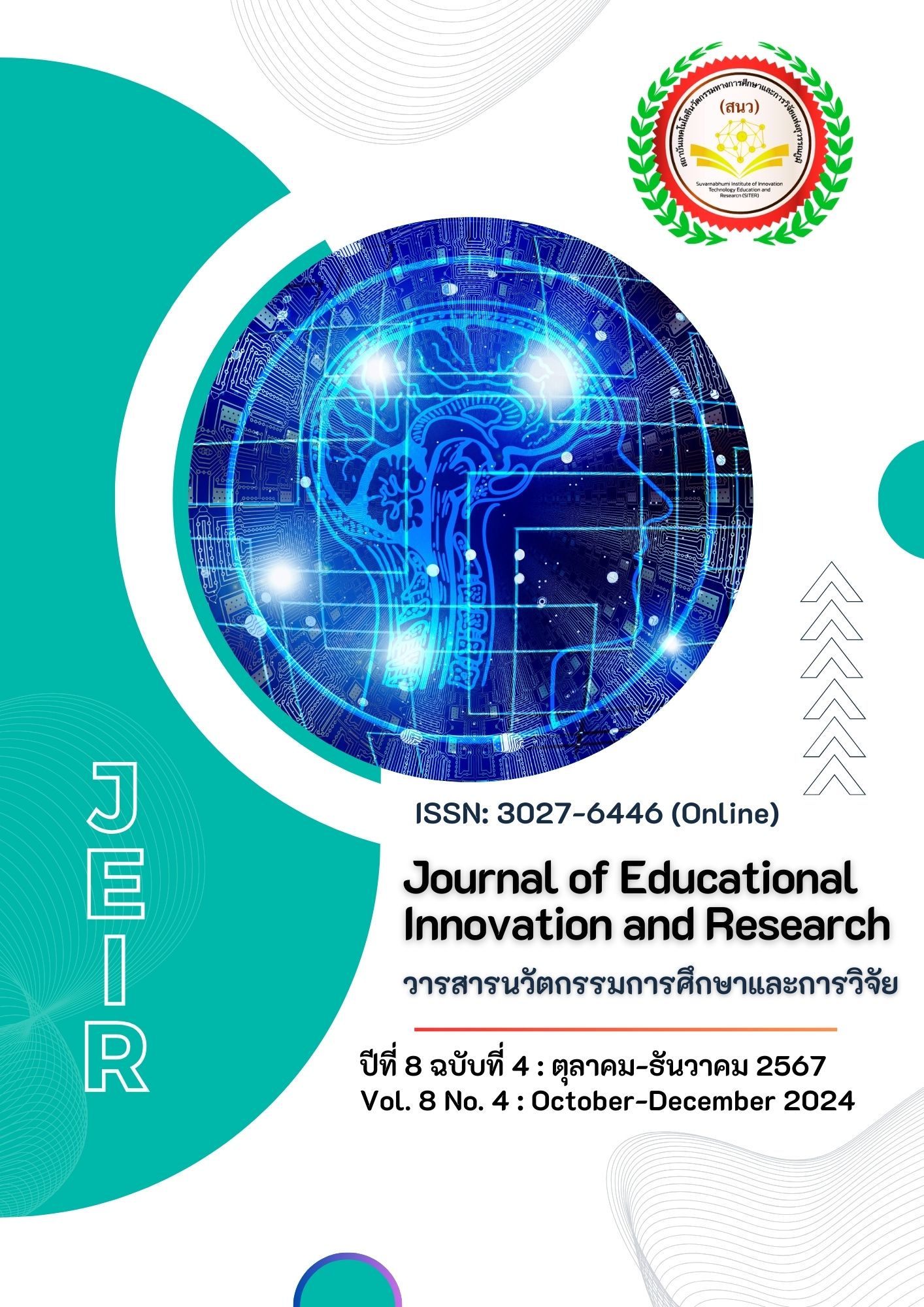Studying the Chinese philosophy “He-he” for teaching music students at Yuxi Normal University, Yunnan, China
Main Article Content
บทคัดย่อ
The purposes of this study are: (1) To study the Chinese philosophy “He-he” and music teaching design. (2) Constructing the “He-he” music teaching design guidebook. (3) Teaching the music students in experimental group by using “He-he” music teaching design guidebook. (4) To evaluate the result of teaching.
This research was mixed-method research. The qualitative research was conducted by interviewing 8 experts. The population was 100 students from senior students majoring in music education, at Yuxi Normal University, Yunnan Province, China. The sample group was 10 students who are the top 10% of seniors in overall academic performance. Purposeful sampling be used in the reasearch phase.
The research findings were: (1) Chinese philosophy "He-he" is a core thought in Chinese culture. If it is applied to music teaching design, students can better understand the underlying logic of teaching and improve the ability of teaching design. (2) The "He-he" music teaching design guidebook is divided into two parts, six chapters. The first part is the theoretical part, including the first and second chapters. The chapter one is related to the Chinses philosophy "He-he", and the chapter two is Chinese Music Aesthetics and Music Education based on "He-he" culture. The second part is the practical part, which contains chapters three to six, Chapter three is "He-he Min Sheng", Chapter four is "Tian Ren He Yi", Chapter five is "He Wei Gui", and chapter six is "He Er Bu Tong". (3) The teaching experiment lasts for 15 classes, each of which lasts 45 minutes. Through knowledge explanation, case analysis, practical training and other ways to complete the teaching content. (4) The evaluation of this teaching experiment is conducted by means of formative test and summative test. Every student received a final grade of pass or above. The average score of formative tests is 78, and that of summative test is 80, which is 2 points higher than that of formative test.
Article Details

อนุญาตภายใต้เงื่อนไข Creative Commons Attribution-NonCommercial-NoDerivatives 4.0 International License.
เอกสารอ้างอิง
Duan, Y. Z. (1988). Explanation of the text. Shanghai Ancient Books Publishing House.
Guo, N. M. (1962). Oracle bone script research. China Science Press.
Liu, X. J. (2016). The research of He concept of ancient Chinese confusion [Doctoral dissertation, Shandong University].
Sun, L. (2011). Differentiated teaching evaluation: based on the perspective of harmonious cultural spirit [Doctoral dissertation, Nanjing Normal University].
Wang, J. Y. You Jinghan (2020). Research on the path of building a community with a shared future for mankind from the perspective of harmonious culture [Master’s thesis, Shandong University].
Zhou, X. (2020). Research on the inheritance and innovation of the thought of harmony in Chinese excellent traditional culture [Master’s thesis, Henan University of Technology].


